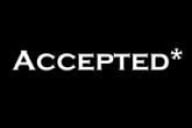You have /5 articles left.
Sign up for a free account or log in.
Andrea Zellner is a PhD student in the Ed Psych/Ed Tech program at Michigan State University. She can be found on Twitter at @AndreaZellner.
As a researcher in an applied field (Ed Psych/Ed Tech, to be precise), I am acutely aware of the pressure for my research be both authentic and easily applicable. Nonetheless, my field still struggles with making research relevant and useful to practitioners. While every grad student is trained to be able to answer the “How is this applicable” question, in the end it doesn’t really matter. The coin of the realm is still peer-reviewed journal publication records, and the number of citations that result from these publications matter far more than the number of practitioners who apply the work to their contexts.
For the past two months, I have found myself straddling both worlds. On the one hand, I am a graduate student, swimming in dissertation data and attempting to wrangle it into submission so I can analyze it. I am feeling the publication pressures and assuming I’m not writing enough. On the other hand, I am a practitioner. In January, I began a job working in a K-12 school district, applying all my hard-won knowledge to my new job (never has my memorization of research for those early program milestones come so in handy!). What is difficult for me navigating this situation is how little the research is used on a day-to-day basis in my job context, and how all-consuming it is in my grad student context. In terms of what is publishable and citable, that research doesn’t seem to rank in the day-to-day decisions of those working in the trenches.
Returning to the field after being on the “other side” for a few years has had me reflecting on the changes my practitioner side would like to see from those in Higher Ed to better bridge the theory-practice gap:
-
We need more outlets for researchers to “translate” their research and theoretical findings into layman’s terms. The sciences have a particularly difficult task for this. It seems like every other day I’m lured in by a seductive headline and write-up about some new finding, only to have my suspicions raised. More often than not, the reporter has misunderstood (or even grossly misrepresented) the findings from a published journal article. Finding venues for academics and researchers to translate the research for laymen themselves might help with this problem. In my dream world, prestigious journals would ask authors to blog their research. For a great example of what this might look like, see Bon Stewart’s post on her recent research.
-
We need more public intellectualism. Right now there is little incentive in the Higher Ed system for academics to engage with the public. As a graduate student, my training has not included any discussion of the need for public intellectualism, nor how one manages that as part of a strong academic career. It takes training to be a good presenter of research to audiences beyond the experts, and modeling what engaged public intellectualism looks like would be a welcome addition to grad programs.
-
We need these to be valued by the tenure system. Of course, public intellectualism takes time, and time is not in abundance with publishing pressures, funding pressures, and teaching obligations. In some ways, MOOCs and public online teaching have allowed some academics to streamline the “teaching” and the “public” aspects, but it would be ideal if blogging, tweeting, and other forms of online engagement were considered and valued in the tenure process (and, ideally, in the hiring process!).
-
We need more opportunities for boundary-crossing: for experts to engage in applied practice for their fields. In my field, it is not uncommon to run across education professors researching K-12 contexts and teaching K-12 teacher candidates who have never themselves taught in K-12 contexts. As a researcher-in-training, I have sat in on presentations and reviewed articles where very plausible alternative explanations for outcomes are not put forth because of this lack of understanding of the teacher’s view. Currently, there are very few opportunities for researchers to participate in the field in education. While anecdotally it seems there is more boundary-crossing in the fields of medicine, for example, where researchers might also treat patients, it seems that both the field and research would benefit from this type of boundary-crossing.
-
We need to cultivate curiosity and intellectual humility on both sides of the practitioner/researcher divide. We all benefit when we admit what we don’t know and engage with those who might have a different perspective.
In the end, I have a concern that important and critical work is being ignored when it comes to being used in the fields the research intends to improve. While this might not be true to the same extent in all fields, in general, translating research findings for the general public is a task that we all would benefit from.
In what ways is your field bridging the theory to practice divide? Let us know in the comments!
[Photo courtesy of Flickr user mypresense via Wikimedia Commons and used under a Creative Commons license.]








